Related Research Articles
Theobald III of Blois (1012–1089) was count of Blois, Meaux and Troyes. He was captured in 1044 by Geoffrey II, Count of Anjou, and exchanged the county of Touraine for his freedom. Theobald used his nephew's involvement with the Norman invasion of England, to gain authority over the County of Champagne. He died in 1089.
Thibault is a French personal name and surname, a form of Theobald, a Germanic name composed from the elements theod- "people" and bald "bold".

Theobald of Provins (1033–1066) was a French hermit and saint. He was born at Provins to the French nobility, his father being Arnoul, Count of Champagne. He was named after his uncle, Theobald of Vienne, also considered a saint.

The House of Blois is a lineage derived from the Frankish nobility, whose principal members were often named Theobald.
Ensemble Organum is a group performing early music, co-founded in 1982 by Marcel Pérès and based in France. Its members have changed, but have included at one time or another, Josep Cabré, Josep Benet, Gérard Lesne, Antoine Sicot, Malcolm Bothwell. They have often collaborated with Lycourgos Angelopoulos and are influenced by Orthodox music.
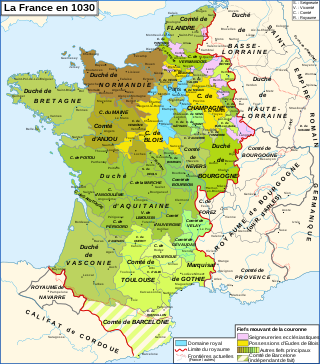
Adele of Valois (Adèle/Adélaïde) was a daughter of Ralph IV of Valois and Adele of Bar-sur-Aube.
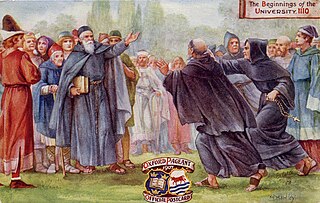
Theobald of Étampes was a medieval schoolmaster and theologian hostile to priestly celibacy. He is the first scholar known to have lectured at Oxford and is considered a forerunner of Oxford University.
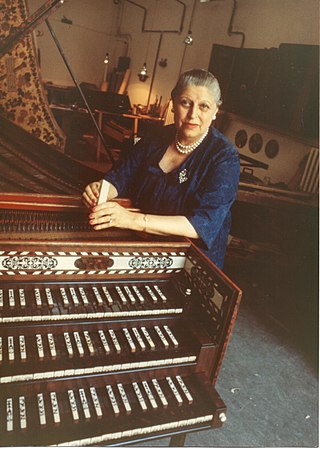
Geneviève, comtesse Hubert de Chambure Thibault was a French musicologist associated with the revival of interest in early music. She graduated from the Sorbonne in 1920 with a thesis on John Dowland, and then continued the work with André Pirro on her doctoral thesis on the fifteenth-century chanson, which she never completed. In 1925 co-founded the Société de musique d'autrefois, designed to promote the publication de musical texts and a magazine les Annales musicologiques. After her marriage in 1931 she stopped musical and scholarly activities, gave birth to six children, and alternated her life between Vietnam and France. After the death of her husband Hubert Pelletier de Chambure (1903-1953), she returned permanently to Paris, where in June 1953 she resumed her scholarly activities and organization of concerts. From 1961 to 1973, she was curator of the historical instrumentals of the Conservatoire de Paris - in addition to having amassed her own private collection. She was an important muse and teacher to the first generation of baroque specialists, including young Americans in Paris - William Christie (harpsichordist) and soprano Judith Nelson.
Theutbald I was the bishop of Langres from when he was elected to succeed Alberic until his death. He is first securely attested as bishop in 842. He may have belonged to the same Bavarian family that had dominated the episcopate of Langres since 769.
Theutbald II was one of the rival bishops of Langres following the disputed election of 888. According to Flodoard of Reims, he was a relative of Charles the Simple, king of West Francia.
Geneviève Hasenohr is a French philologist and prolific scholar of medieval and Renaissance French literature. She has authored or contributed to more than forty books, written at least fifty academic articles and reviews, and prepared numerous scholarly editions.

Hervé Pinoteau, 6th Baron Pinoteau was a French historian and royalist apologist. He was the author of more than 900 articles and 22 books primarily on history and heraldry.
Philippe de Nanteuil was a French knight and trouvère. He inherited the seigneurie of Nanteuil-le-Haudouin from his father, also Philippe de Nanteuil. He was a vassal of Thibaut de Champagne, who was king of Navarre and also a trouvère, and became his friend.
Henry of Burgundy, called the Gallant, was the eldest surviving son and heir of Robert I, Duke of Burgundy, second son of Robert II of France, and his wife, Helie of Semur, granddaughter of Henry I, Duke of Burgundy. Little is known about his life. He died shortly before his father and was never duke himself.
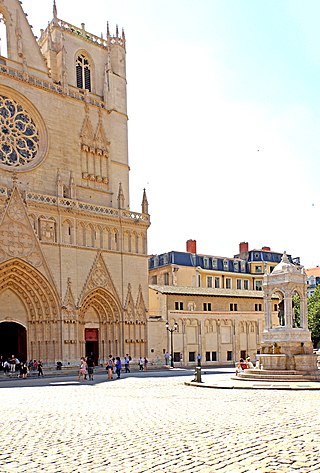
Gébuin was an archbishop of Lyon who served 1077 to 1082.

Szabolcs de Vajay was a Hungarian historian and genealogist.
Baldrick II was bishop of Liège from 1008 to his death at Heerewaarden in what is now the Netherlands.
William of Auberive was a Cistercian monk and numerologist who served as the abbot of Auberive from 1165 until 1186.
Gaston Raynaud was a French philologist and librarian.
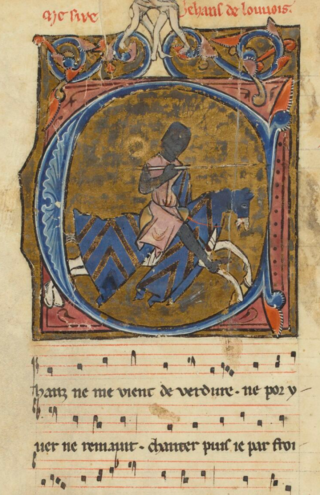
Jehan de Louvois was a French nobleman and trouvère from the County of Champagne.
References
- Notes
- ↑ His name may also be spelled Theobold, and in French Thibaud, Thibaut or Thibault.
- ↑ "Concerning the Four Modes in which the Meanings of Numbers are Opened": for the four modes of the title, see Evans (1984), p. 62.
- ↑ Quotiens igitur aliquem volueris numerum sacramentare, debes predictos sacramentandi modos explicare, explicitosque revolvere, quia crebra fortassis revolutione, quod queris, invenies inter eos latere.
- Citations
- 1 2 Beaujouan 1982, p. 483.
- ↑ Evans 1984, p. 59.
- ↑ Brown 1998, p. 32.
- Sources
- Beaujouan, Guy (1982). "The Transformation of the Quadrivium". In Benson, Robert Louis; Constable, Giles; Lanham, Carol Dana (eds.). Renaissance and Renewal in the Twelfth Century. Cambridge, MA: Harvard University Press. pp. 463–87.
- Brown, Catherine (1998). Contrary Things: Exegesis, Dialectic, and the Poetics of Didacticism. Stanford, CA: Stanford University Press.
- Evans, G. R. (1984). The Language and Logic of the Bible: The Earlier Middle Ages . Cambridge: Cambridge University Press.